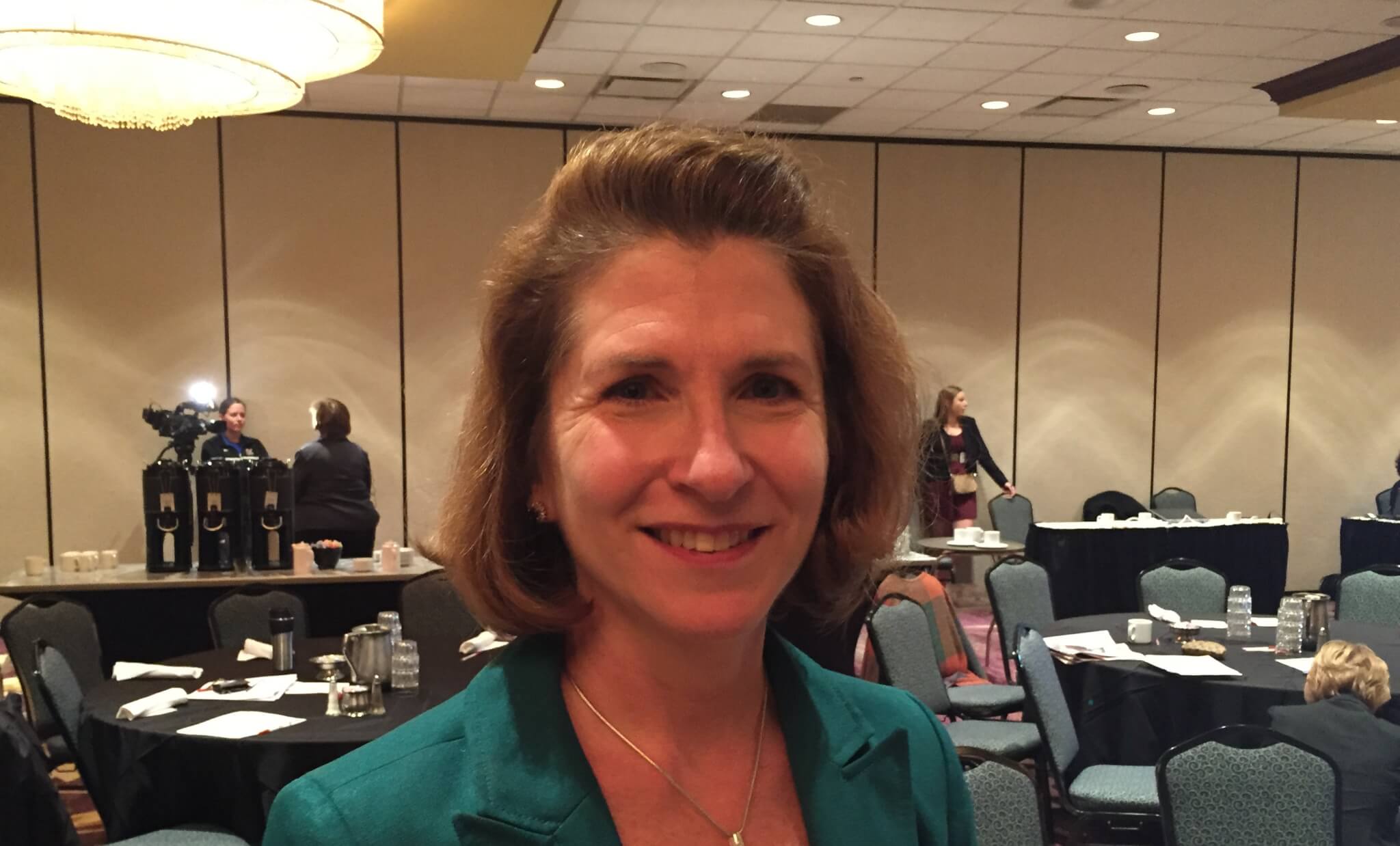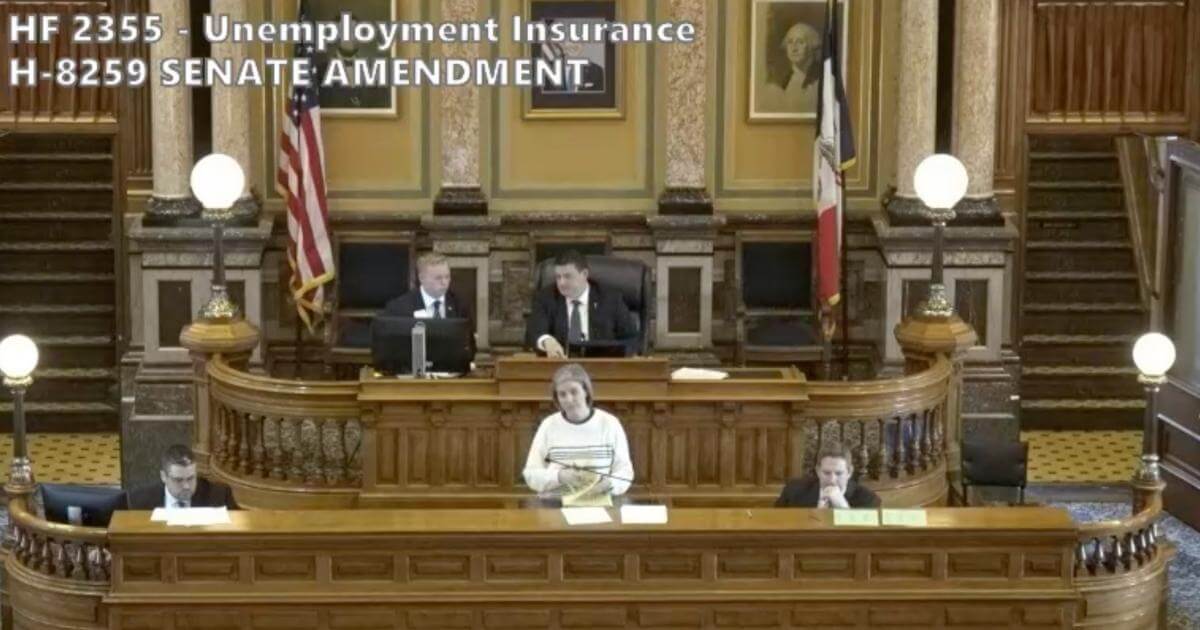
Something doesn’t add up with Governor Kim Reynolds’ budget numbers. After an entire year of state revenue coming in under predictions time and again, with Republicans making painful cuts to essential services and borrowing from the rainy day fund, Iowa’s fiscal situation suddenly drastically improved – just in time to avoid a special session. Despite Iowa looking at an $104 million shortfall when Fiscal Year 2017 ended this summer, the state found enough money through various accruals that it only needed $14.6 million more to finish off the year, easily under the $50 million that Reynolds had the authority to transfer.
That had a lot of Iowa legislators, reporters and policy experts scratching their heads as to how such a drastic (and very convenient) change came about. Democratic State Representative Chris Hall called for State Auditor Mary Mosiman to investigate and to conduct a full audit.
“On June 30th, the state was $104 million short of closing the books with a balanced budget. On September 21st, the Reynolds Administration said the state only needed $14.6 million to close the books on Fiscal Year 2017,” Hall said in a press release. “Iowa taxpayers deserve to know whether the Reynolds Administration used budget gimmicks (delayed payments), shell games (transfers), or kept two sets of books to close the fiscal year and avoid a special session.”
Hall is requesting that Mosiman look into a number of highly questionable numbers that are being used by the Reynolds Administration. He points out that the type of accruals that came in at $73.5 million this year only ranged between -$16.2 million and $19.6 million over the past four years. That makes this year’s total quite the outlier.
Mosiman’s predecessor, Republican Auditor Dave Vaudt, was never shy to challenge the sitting governor over their budget numbers. Back in 2010, Vaudt criticized Chet Culver’s budget as being over $400 million out of balance by his calculations. He pointed to one-time sources in Culver’s plan and not accounting for a state employee pay raise would send the 2011 budget far higher than the Democratic governor’s estimates. He also wasn’t afraid to point out flaws in Terry Branstad’s numbers. In 2012, Vaudt accused Branstad and the Legislature of “continuing to play tricks with budget numbers” with one-time funding.
Branstad appointed Mosiman to fill Vaudt’s role in 2013 when Vaudt stepped down for another job, and she’s flown largely under the radar in the years since, riding the Republican wave in 2014 to win her first full term. But the state’s budget mess will likely continue to dominate Iowa news coverage for the entirety of next year, as well as the campaign cycle. It is the biggest crisis Iowa faces right now. If she wants to maintain her own credibility – and that of the state’s budget – Mosiman needs to use her office as the oversight mechanism it’s supposed to be. Even if that means auditing a fellow Republican and friend in Reynolds. Otherwise, why is she there?
Assistant Attorney General Rob Sand is strongly considering a run against Mosiman as the Democratic candidate in 2018.
Hall wants Mosiman to investigate a number of pieces of questionable information in Reynolds’ budget. He laid them out in a letter he sent to her:
“1. When the 2017 Fiscal Year ended on June 30, the non-partisan Legislative Services Agency (LSA) said the budget was short $104.4 million. How was that number reduced by the Iowa Department of Management to borrowing just $13 million to close the state’s books?
2. Since thousands of Iowans had their refunds delayed earlier this year because the state didn’t have money to pay them, how many refunds for tax year 2016 still need to be paid by the Iowa Department of Revenue and what is the total dollar amount?
3. The Legislature appropriated $1.622 billion for Medicaid in FY17. The Managed Care Organizations (MCO’s) reported millions in losses last year and still have not agreed to capitation rates for FY 18. What is the final dollar amount spent on Medicaid in FY17? Have all payments for FY 17 services been paid by the Iowa Department of Human Services to the MCO’s? If not, how many payments have been delayed and must be paid out of the FY18 budget? Is there an ongoing reconciliation process for any Medicaid invoices from FY17?
4. What other invoices from FY17 have not been paid to date? What is the total amount of the FY 17 invoices that will have to be paid in the FY18 budget?
5. The REC estimated the state’s net accruals in March would be $29.1 million this year. Over the last four years, accruals have ranged from -$16.2 million to a $19.6 million. To close the books this year, the state is now reporting net $73.5 million in accruals, which is the highest number in the last decade. Why is that number so high over the estimate? Can you recommend changes to the processes the Executive Branch uses to close out a fiscal year to improve predictability?”
by Pat Rynard
Posted 9/27/17
Politics

It’s official: Your boss has to give you time off to recover from childbirth or get an abortion
Originally published by The 19th In what could be a groundbreaking shift in American workplaces, most employees across the country will now have...

Trump says he’s pro-worker. His record says otherwise.
During his time on the campaign trail, Donald Trump has sought to refashion his record and image as being a pro-worker candidate—one that wants to...
Local News

No more Kum & Go? New owner Maverik of Utah retiring famous brand
Will Kum & Go have come and gone by next year? One new report claims that's the plan by the store's new owners. The Iowa-based convenience store...

Here’s a recap of the biggest headlines Iowa celebs made In 2023
For these famous Iowans, 2023 was a year of controversy, career highlights, and full-circle moments. Here’s how 2023 went for the following Iowans:...





